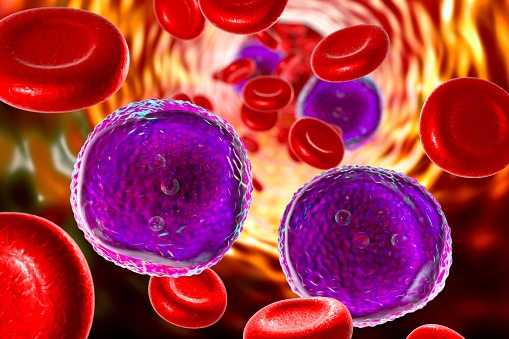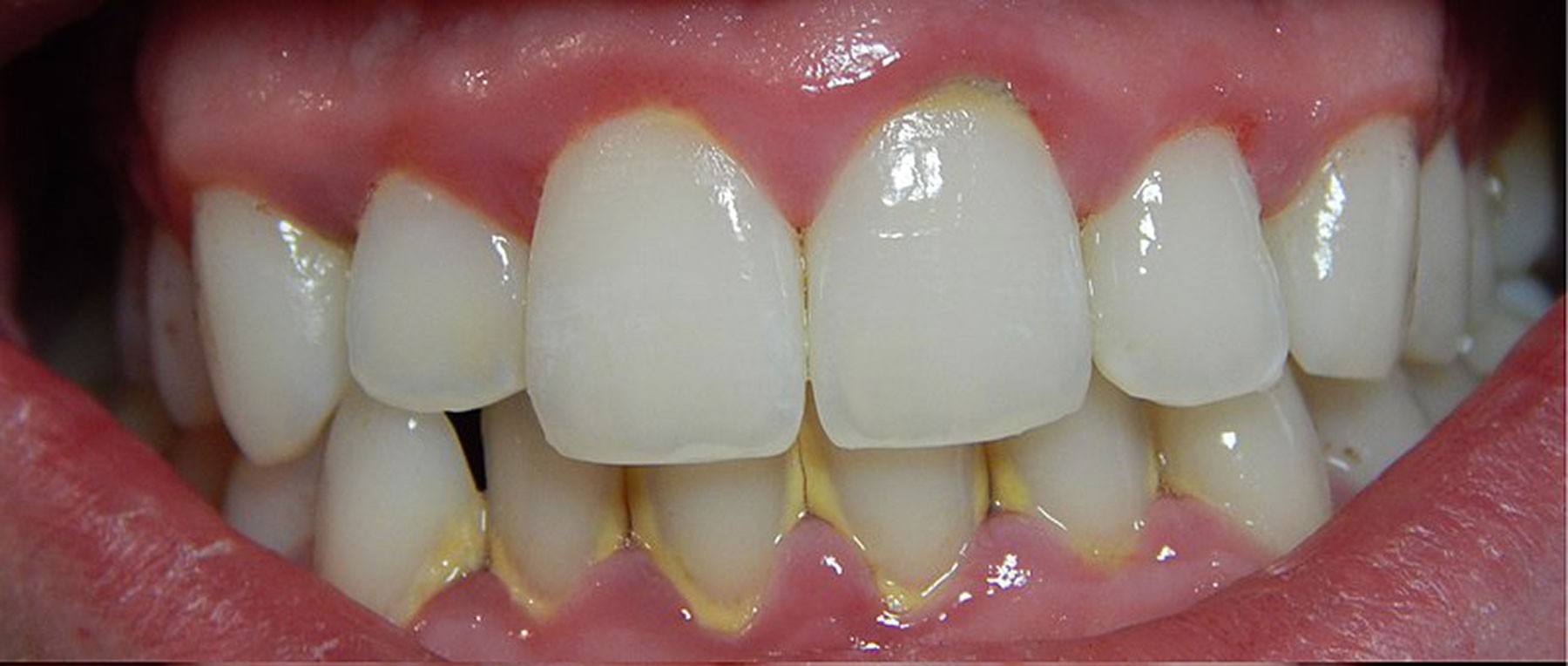Autoimmune diseases; Causes, symptoms, types, and methods of treatment
Autoimmune diseases are among the most complex and incurable diseases related to the immune system. These diseases occur when the immune system attacks healthy cells in the body.
There are different types of these diseases. This article wants to introduce you to the causes, symptoms, and types of autoimmune diseases. Finally, we will discuss how to treat them.
What is an autoimmune disease?

In autoimmune diseases, the immune system randomly detects and attacks healthy cells as invaders and external agents.
The immune system is a network made up of different tissues, organs, and cells whose role is to defend the body against invaders, infections, and diseases.
The wrong immune system causes autoimmune diseases. In other words, in this disease, the immune system randomly detects and attacks healthy cells as invaders and external agents.
Research shows that autoimmune diseases have genetic, racial, and gender components. The disease is difficult to diagnose and usually has common symptoms.
Causes of autoimmune diseases
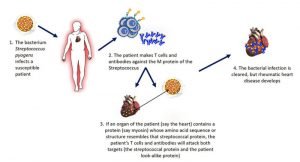
Red blood cells in the immune system help protect the body against harmful substances such as bacteria, viruses, toxins, cancer cells, and foreign agents. These harmful substances contain antigens.
Antigens invade the body and lead to infection. The body’s immune system produces antibodies against these antigens, enabling them to destroy these harmful substances.
If you have an autoimmune disorder, your immune system cannot tell the difference between healthy tissue and antigens; Thus, it destroys natural and healthy tissues.
The exact cause of the autoimmune disorder in the body is unknown. One hypothesis is that some microorganisms (such as bacteria and viruses) and drugs cause a series of changes and confuse the immune system. This may be more common in people whose genes are prone to autoimmune disorders.
Autoimmune disorders can lead to the following complications:
- Destruction of body tissue
- Abnormal growth of an organ
- Makes changes in the function of organs
Autoimmune disorders may affect one or more organs and tissues in the body. Autoimmune diseases affect certain parts of the body, including:
- Blood vessels
- Connective tissues
- Internal secretory glands (endocrine glands) such as the thyroid or pancreas (Useful Foods For Those With Hypothyroidism Function)
- joints
- Muscles
- Red blood cells
- Skin (Oily Skin And Everything You Need To Know About Caring For It)
Symptoms of autoimmune diseases
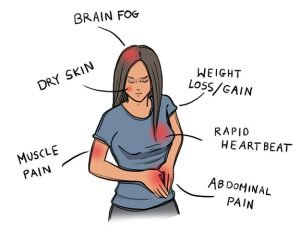
The early symptoms of many autoimmune diseases are the same, such as:
- Fatigue
- Muscle aches
- Inflammation and redness
- Low fever
- Difficulty concentrating
- Numbness and tingling in the hands and feet
- hair loss
- Skin lesions
Each disease has its unique symptoms. For example, type 1 diabetes leads to severe thirst, weight loss, and fatigue. Inflammatory bowel disease causes heartburn, bloating, and diarrhea.
Symptoms of autoimmune diseases, such as psoriasis and rheumatoid arthritis (RA), appear for a while and then go away.
When the symptoms appear, the relapse period and the period when the symptoms go away are called the recovery period. Here are some of the most common autoimmune diseases:
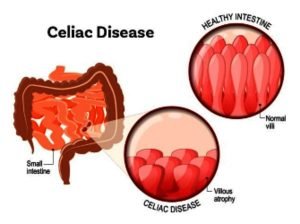
- Celiac disease
Celiac disease occurs due to intolerance and sensitivity to gluten. Celiac disease is an autoimmune disease in which the lining of the small intestine becomes inflamed after eating foods that contain gluten (a type of protein). Gluten is found in wheat, rye, oats, and other foods.
Symptoms include inflammation and pain in the abdomen, burning in the chest, tiredness, weight loss, diarrhea, and vomiting.
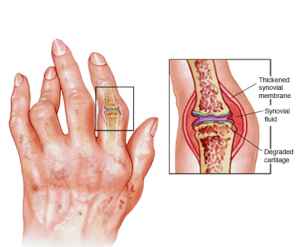
2. Rheumatoid arthritis (RA) is an autoimmune disease
It is one of the most common chronic and long-term autoimmune diseases and usually affects the joints of the hands and feet and causes the immune system to attack the tissues. This disease’s symptoms include inflammation and painful cramps in the joints, especially the joints’ hands and feet.

- Psoriasis
Psoriasis is an autoimmune disorder that appears to be caused by stress, infections, and environmental factors. The disease causes dryness, scaling, itching of parts of the skin, and joint pain.
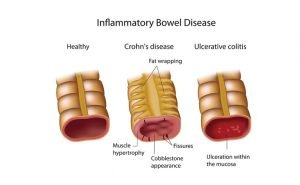
- Inflammatory bowel disease (IBD)
This disease leads to long-term inflammation of the intestines and lining of the gastrointestinal tract. Symptoms include abdominal pain, bloating, dysentery, nausea, and constipation.
There are two types of inflammatory bowel disease: “Crohn’s disease,” which is a chronic inflammation that can affect any part of the gastrointestinal tract, from the mouth to the anus, and the second type, called “ulcerative colitis,” which leads to long-term inflammation of the large intestine. It becomes.

- Addison’s disease is an autoimmune disease
It occurs when the adrenal glands do not produce enough of the hormones cortisol and aldosterone. This condition can lead to low blood pressure, fatigue, dizziness when standing, low blood sugar, dehydration, loss of appetite, nausea, and darkening of the skin.

- Type 1 diabetes
Type 1 diabetes is also called insulin-dependent diabetes mellitus. This autoimmune disease occurs when the pancreas does not produce or does not produce enough insulin; Thus, it causes uncontrolled blood sugar. Symptoms include frequent urination, increased thirst, decreased energy, blurred vision, hunger, and nausea. (Diabetes: Everything About The Symptoms And Treatment Of Diabetes)
Type 1 diabetes occurs when the pancreas does not produce or does not produce enough insulin; Thus, it causes uncontrolled blood sugar.
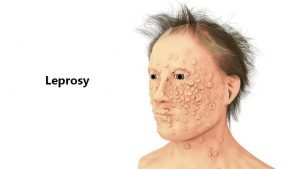
7. Leprosy
Leaks, pimples, vitiligo, or blemishes can cause skin pigments to disappear or discolor large areas of skin. Skin discoloration is more pronounced in people with darker skin.

- Hashimoto, including autoimmune diseases
This disease, which causes inflammation of the thyroid gland, leads to inadequate production of thyroid hormone over time. Symptoms include overweight, fatigue, depression, joint cramps, and hypersensitivity to cold.
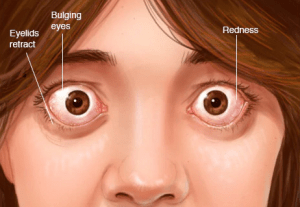
- Graves
Graves’ disease also affects the thyroid, but unlike Hashimoto’s disease, it causes the thyroid to overproduce. Symptoms include weight loss, anxiety, hand tremors, high blood pressure, and sweating.
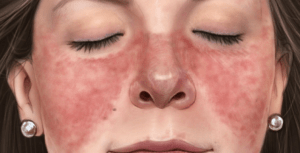
- Systemic lupus erythematosus
The disease causes inflammation of the skin and joints, and in acute cases, leads to inflammation of internal organs. Symptoms of lupus include muscle and joint pain, skin rash, fatigue, and fever.
What factors increase the risk of developing autoimmune diseases?
Anyone can get autoimmune diseases, but some factors increase the risk of developing these diseases. These factors include:
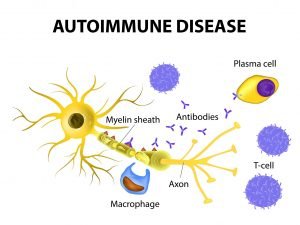
- Genetics: Research shows that a family history of autoimmune diseases increases the risk of developing these diseases.
- Gender: Women are more prone to autoimmune diseases than men. Researchers do not know the cause, but hormonal factors and the fact that women have more robust immune systems than men could cause.
- Age: Autoimmune disease often occurs in young and middle-aged people.
- Race: Native Americans, Latinos, and African-Americans are more at risk for autoimmune diseases than whites.
- Infection: If a person is genetically predisposed to viral and bacterial infections, they are more likely to develop autoimmune diseases in the future. Although the reason for this is unclear, research is still investigating the role of infections in the immune system.
Diagnosis of autoimmune disorders:
It is difficult to diagnose autoimmune disorders, especially in the early stages and when many organs and systems are involved. Depending on the type of disorder, the diagnostic methods are:
- Physical examination
- Medical history
- A blood test that includes tests that detect autoantibodies
- sampling
- Radiotherapy
How are autoimmune diseases treated?
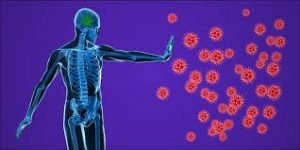
Autoimmune diseases are usually incurable, but in many cases, the condition can be controlled. Drugs used to control autoimmune diseases include:
- Anti-inflammatory drugs: to reduce inflammation and pain
- Corticosteroids: such as paracetamol and codeine
- Immunosuppressive drugs: To prevent the activity of the immune system
- Physiotherapy: To help the patient to move
- Medications to compensate for body deficiencies: These include insulin injections in people with diabetes to compensate for insulin deficiency.
- Surgery: For example, to treat intestinal obstruction in people with Crohn’s disease
- High-dose immunosuppressants: Recently used immunosuppressive drugs (in doses prescribed to treat cancer or prevent organ rejection) have had promising results. Mostly when this intervention is done earlier, there is a possibility of treating some of these diseases.
In this article, we talked about autoimmune diseases. We first looked at the causes of autoimmune diseases. Then we told the signs. We have mentioned the most common types of autoimmune diseases. Finally, we explained the risk factors, how to diagnose and treat these types of diseases.
Also read:
What is dopamine, and how serious are its effects?
Symptoms that confirm pneumonia
What foods should not be eaten to prevent varicose veins
Cancer: Everything about cancer, symptoms, diagnosis, and treatment



